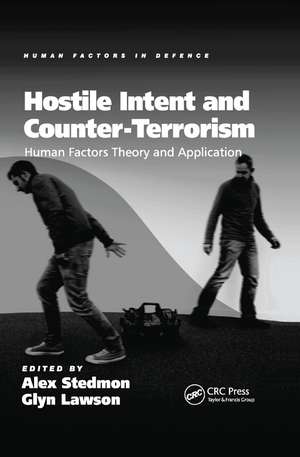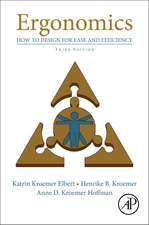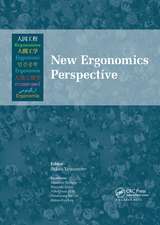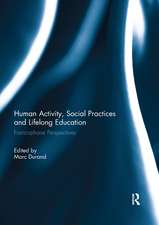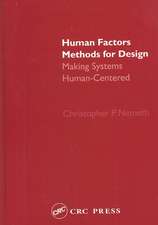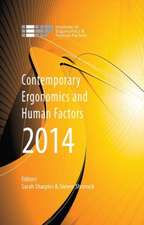Hostile Intent and Counter-Terrorism: Human Factors Theory and Application
Editat de Glyn Lawson, Alex Stedmonen Limba Engleză Paperback – 17 oct 2019
| Toate formatele și edițiile | Preț | Express |
|---|---|---|
| Paperback (1) | 492.37 lei 6-8 săpt. | |
| CRC Press – 17 oct 2019 | 492.37 lei 6-8 săpt. | |
| Hardback (1) | 795.88 lei 6-8 săpt. | |
| CRC Press – 28 dec 2014 | 795.88 lei 6-8 săpt. |
Preț: 492.37 lei
Preț vechi: 579.25 lei
-15% Nou
Puncte Express: 739
Preț estimativ în valută:
94.23€ • 98.25$ • 78.31£
94.23€ • 98.25$ • 78.31£
Carte tipărită la comandă
Livrare economică 21 martie-04 aprilie
Preluare comenzi: 021 569.72.76
Specificații
ISBN-13: 9780367377854
ISBN-10: 0367377853
Pagini: 390
Dimensiuni: 156 x 234 x 23 mm
Greutate: 0.54 kg
Ediția:1
Editura: CRC Press
Colecția CRC Press
ISBN-10: 0367377853
Pagini: 390
Dimensiuni: 156 x 234 x 23 mm
Greutate: 0.54 kg
Ediția:1
Editura: CRC Press
Colecția CRC Press
Public țintă
Academic and Professional Practice & DevelopmentCuprins
Contents:Foreword,Preface,Hostile intent and counter-terrorism: strategic issues and the research landscape. Part 1 Conceptualising Terrorism: The role of fear in terrorism; Understanding terrorism through criminology? Merging crime control and counter-terrorism in the UK; Analysing the terrorist brain: neurobiological advances, ethical concerns and social implications; Ethical issues in surveillance and privacy. Part 2 Deception and Decision-Making: Non-verbal cues to deception and their relationship to terrorism; Deception detection in counter-terrorism, ; A field trial to investigate human pheromones associated with hostile intent; On the trail of the terrorist: a research environment to simulate criminal investigations. Part 3 Modelling Hostile Intent: Safety and security in rail systems: drawing from the prevention of railway suicide and trespass to inform security interventions; Tackling financial and economic crime through strategic intelligence management; Competitive adaptation in militant networks: preliminary findings from an Islamist case study; Evaluating emergency preparedness: using responsibility models to identify vulnerabilities. Part 4 Sociocultural Factors: Unintended consequences of the `War on Terror': home-grown terrorism and conflict-engaged citizens returning to civil society; Parasites, energy and complex systems: generating novel intervention options to counter recruitment to suicide terrorism; Terrorist targeting of schools and educational establishments; Female suicide terrorism as a function of patriarchal societies. Part 5 Strategies and Approaches for Counter-Terrorism: Designing visible counter-terrorism interventions in public spaces; A macro-ergonomics perspective on security: a rail case study; Deception and speech: a theoretical overview to inform future research; Evaluating counter-terrorism training using behavioural measures theory. Part 6 Future Directions: Hostile intent and counter-terrorism: future research themes and questions. Index.
Notă biografică
Dr Alex W Stedmon FIEHF CPsychol CSci FRSA is a Chartered Psychologist, Fellow of the Institute of Ergonomics and Human Factors and Fellow of the Royal Society of Arts. He is a Reader in Human Factors at Coventry University. He worked for the Ministry of Defence before moving into academia and explores human factors issues of technology use in security applications as well as contextual methods for investigating suspicious behaviours in various security related domains. Alex was one of the technical leads for a strategic security consortium (EPSRC project: ’Shades of Grey’) and received Centre for Defence Enterprise funding for projects on: human factors of automated CCTV; identifying human pheromones associated with deception; and collaborative intelligence information gathering. Alex has co-edited special issues of ’Applied Ergonomics’ (44/2013: ’Detecting terrorist activities: Hostile intent and suspicious behaviours’) and ’The Journal of Police & Criminal Psychology’ (28(2)/2013: ’Terrorism psychology: Theory and application’). Dr Glyn Lawson FIEHF - is a Lecturer within the Faculty of Engineering and a member of the Human Factors Research Group at The University of Nottingham. His research expertise includes the human-centred development of new technologies in design and engineering applications. Glyn has particular expertise in the evaluation of methods for predicting behaviour in emergency situations. He has also conducted research on deception detection and worked on requirements capture within the Security domain. Glyn is a Fellow of the Institute of Ergonomics and Human Factors and sits on the Education and Training panel. Glyn also co-edited the special issues of ’Applied Ergonomics’ and ’The Journal of Police & Criminal Psychology’ focusing on detecting terrorist activities and terrorism psychology.
Descriere
This volume brings together research from around the world to explore a range of topics within the project of detecting terrorist activities. It is divided into six key themes: conceptualising terrorism, deception and decision making, social and cultural factors in terrorism, modelling hostile intent, strategies for counter-terrorism, and future directions. Twenty four chapters explore the spectrum of detecting terrorist activities, hostile intent, crowded public spaces and suspicious behaviour. A variety of disciplines are represented, including ergonomics/human factors, psychology, criminology, cognitive science, sociology, political theory, engineering and computer science.
